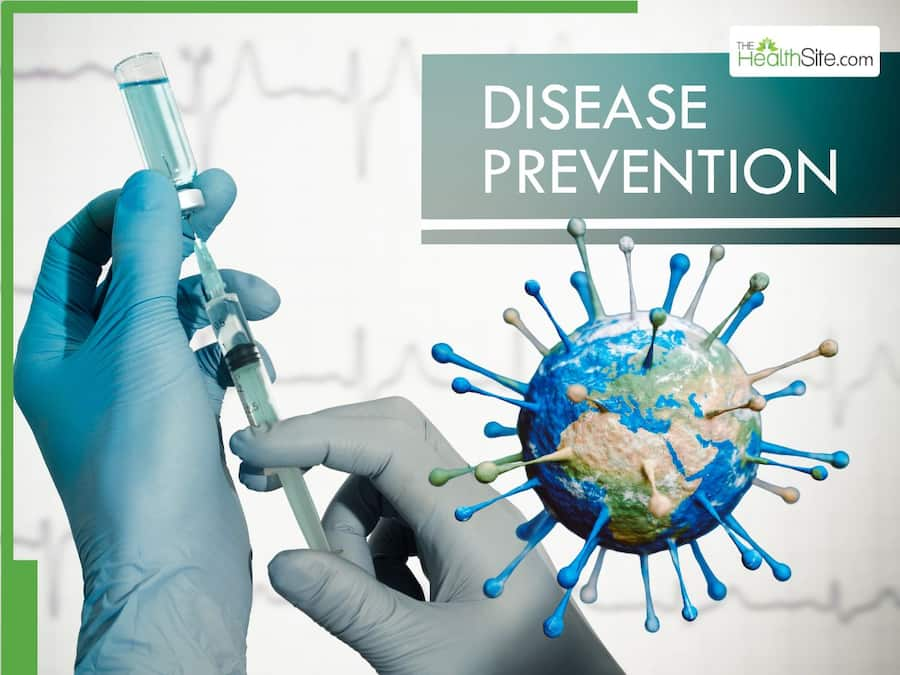Can nutrition and a healthy lifestyle really help prevent diabetes, heart disease, and cancer? Discover how simple changes can protect your health naturally!

Diseases Prevention Tips: As per the latest reports by the World Health Organisation (WHO), non-communicable diseases (NCDs) are the world’s leading cause of death, responsible for 74 per cent or 41 million global annual deaths currently. Additionally, The Sustainable Development Goal (SDG) target 3.4 is to reduce premature mortality from NCDs by one-third by 2030 relative to 2015 levels. The target can be achieved by investing in early life course interventions for NCD prevention and health promotion. It is also important to look at the importance of early interventions when it comes to inculcating healthier habits at an early age as health systems have historically prioritized non-communicable diseases (NCDs) in adults. However, these conditions also affect children and adolescents. With NCD rates increasing rapidly among young people worldwide, there is a growing need to strengthen health systems for effective management of these chronic diseases along with better awareness regarding the role of healthy habits in fighting such conditions.
The Power of Prevention Through Nutrition
Adolescence is a critical period of physical, mental, and social growth, needing adequate nutrition for development, bone health, and hormonal adaptation. Proper nutrition through a balanced diet comprising fruits, vegetables, whole grains, lean protein, and healthy fats is essential for good health. On the contrary, a poor diet with a high content of HFSS (High Fat Sugar Salt) foods may result in deficiencies, compromised immunity, and a higher risk of obesity, which is a key driver of non-communicable diseases (NCDs).
Heart Health
High dietary intake of saturated and trans-fat leads to raised cholesterol, boosting the chances of heart disease down the road. Getting teenagers to include fruits & vegetables in their diets along with sources of healthy fats such as nuts while minimizing ultra-processed empty-calorie junk food and maintaining an active lifestyle minimizing screen time can set them up for a lifelong healthy heart journey.
Diabetes Prevention
India is witnessing a diabetes epidemic. Younger Indians are getting diabetes early on. Faulty lifestyle – skewed HFSS dominant diet and sub-optimal physical activity are critical factors pushing this trend. Encouraging whole grain foods, fruits, and vegetables, which are less likely to produce a spike in blood sugar levels, can help stabilize blood sugar levels and prevent insulin resistance.
Cancer Risk Reduction
Encouraging adolescents to consume a variety of plant-based foods can be a powerful preventative measure. This is because a diet rich in fruits and vegetables provides antioxidants that protect cells from damage, potentially reducing the risk of certain cancers
Bone Health
During adolescence, the bones are especially important to be built up with density. Good calcium and vitamin D intake ensures healthy bones and prevents osteoporosis in old age. All these nutrients are found in foods like dairy, leafy greens, and fortified foods.
Adopting Healthy Habits
Though diet is important, a healthy lifestyle involves more than eating well. Physical activity is essential for the maintenance of a healthy weight, bone and muscle strength, and cardiovascular health. Getting adolescents to participate in a minimum of 60 minutes of moderate-to-vigorous physical activity per day can greatly decrease their risk of NCDs.
Prevention of NCDs among adolescents calls for a multi-faceted strategy that includes families, schools, communities, and policymakers. Nutritional and healthy lifestyle education has to be incorporated into school curricula. Families have an important role to play by offering nutritious food and snacks, promoting physical activity, and fostering an environment conducive to healthy decisions. Communities can provide access to affordable and healthy foods, safe places for physical activity, and support mental well-being by bringing in support services wherever required.


